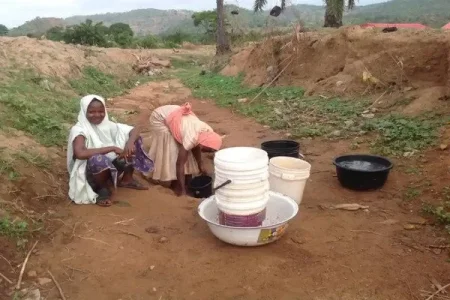
Nasarawa Eggon faces a growing water crisis as residents resort to stagnant ponds for survival. With public water systems failing and government silence deepening frustrations, community health is at risk. Locals demand urgent action amid fears of disease and worsening conditions.
In Nasarawa Eggon, a town nestled in Nigeria’s north-central region, desperation is visible in the murky pools residents now rely on for survival. With no functioning public water supply for weeks, families are turning to stagnant ponds, open ditches, and contaminated runoff for their daily needs.
Across neighborhoods like Angwan Kuje, residents line up with buckets and bowls, scooping from shallow puddles tainted with animal waste and debris. For them, this has become a grim routine.
“We’ve not had tap water for over two months,” said Ruth Adefu, a mother of four. “This is the only source we have, even though it’s not safe.”
Despite the dire conditions, political leaders and officials remain silent. A resident, Luka Akiwa, expressed disbelief: “Our Commissioner for Water Resources lives just 400 meters from here. He sees what’s happening, but nothing is being done.”
Further compounding the crisis is the breakdown of boreholes and wells that once served the area. A solitary water tanker donated by a community member has offered momentary relief, but it's far from a solution.
Health experts warn of a looming outbreak of waterborne diseases. Meanwhile, at the Ministry of Water Resources and Rural Development, inquiries went unanswered. A staff member, speaking anonymously, admitted that repairs were planned but could not confirm when clean water would flow again.
As temperatures rise and dry conditions persist, residents are left asking: how long must they endure before access to clean water is restored?




